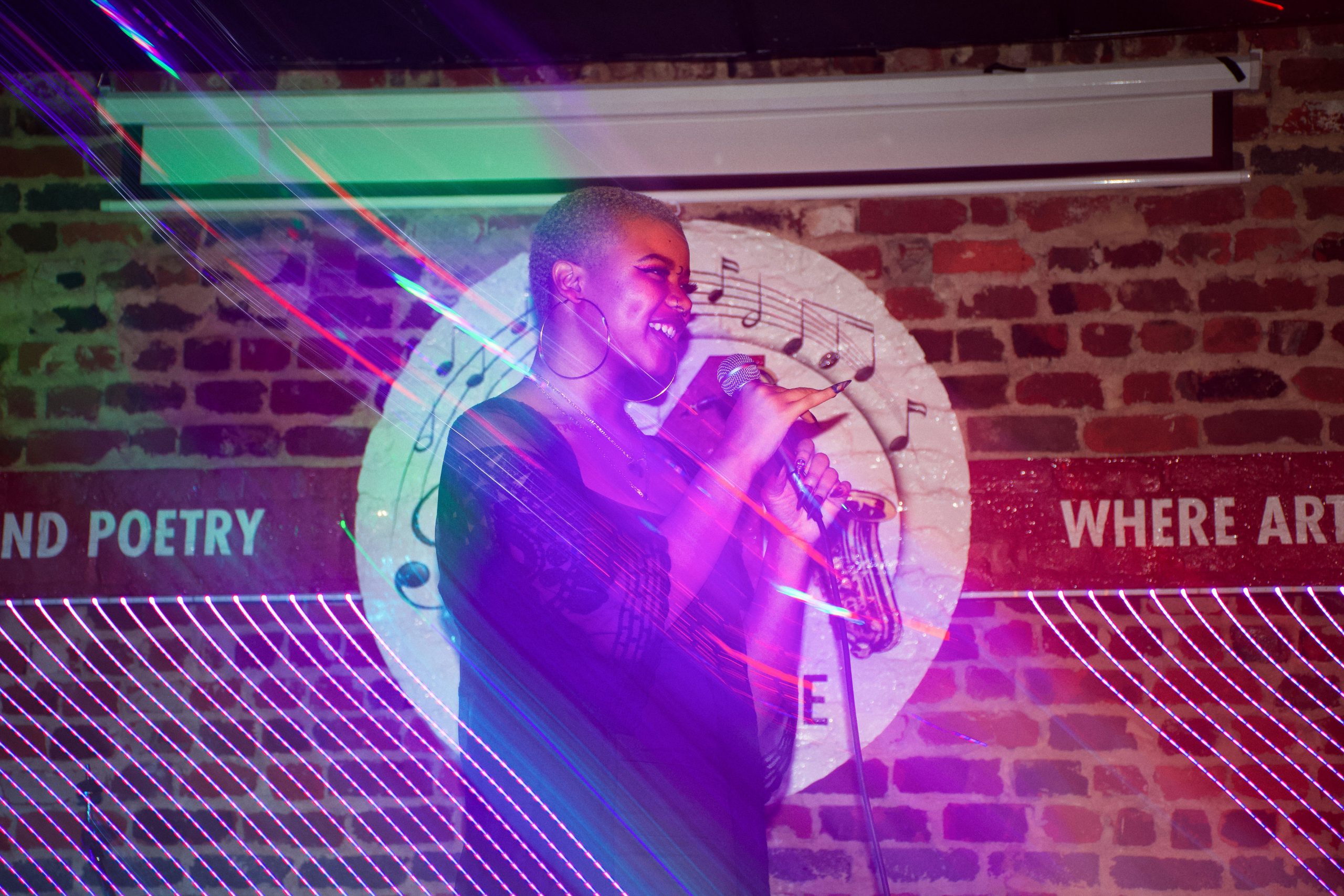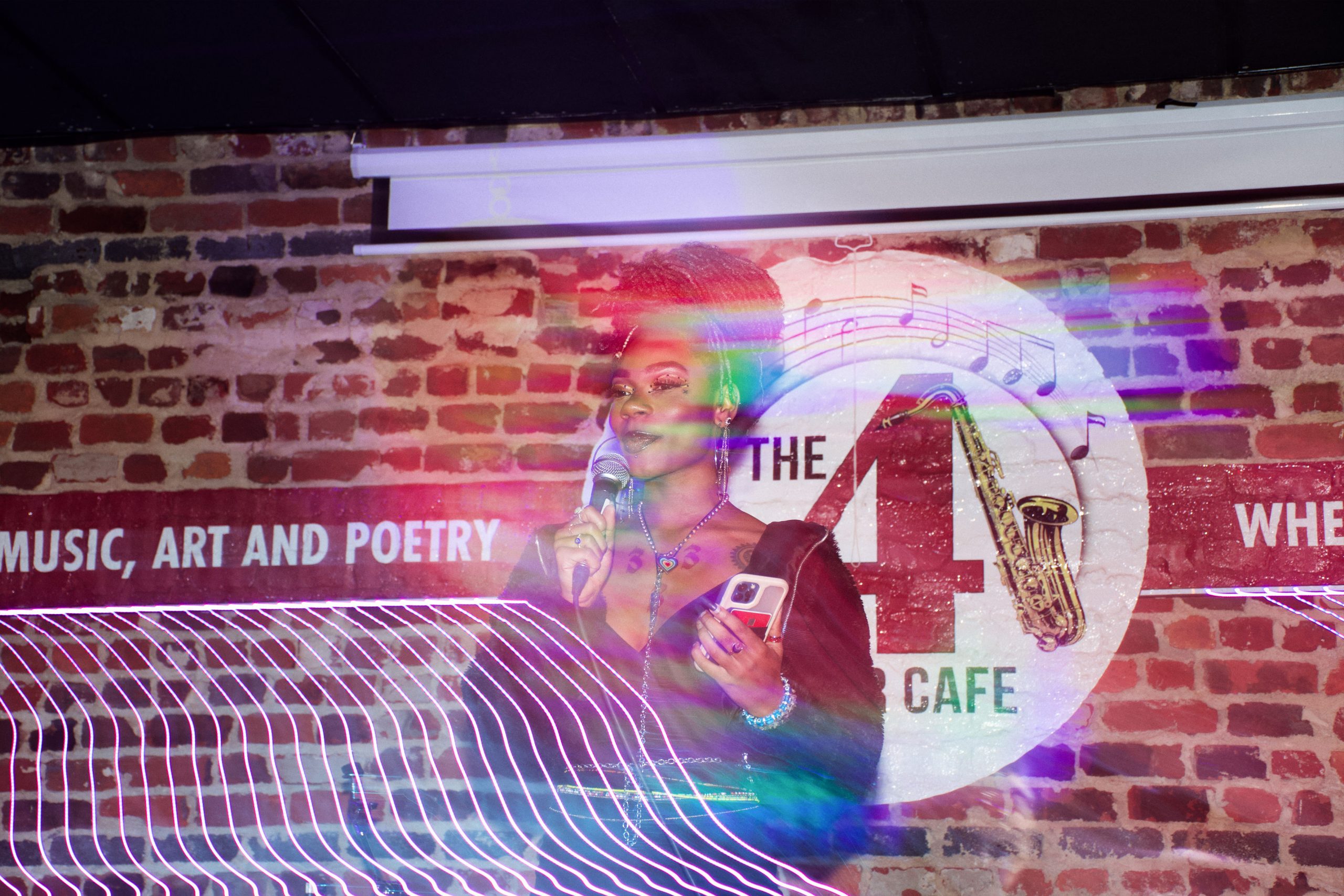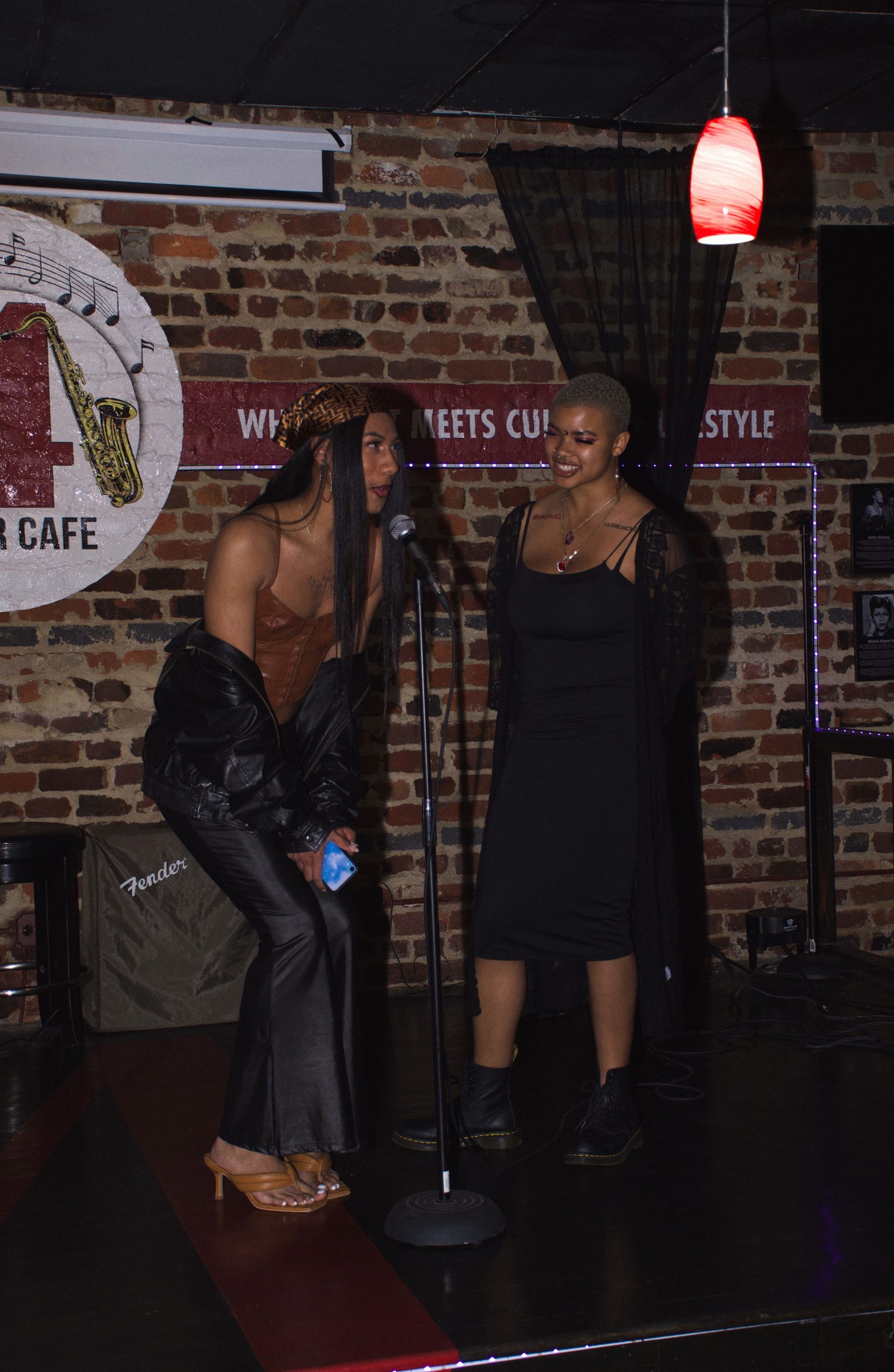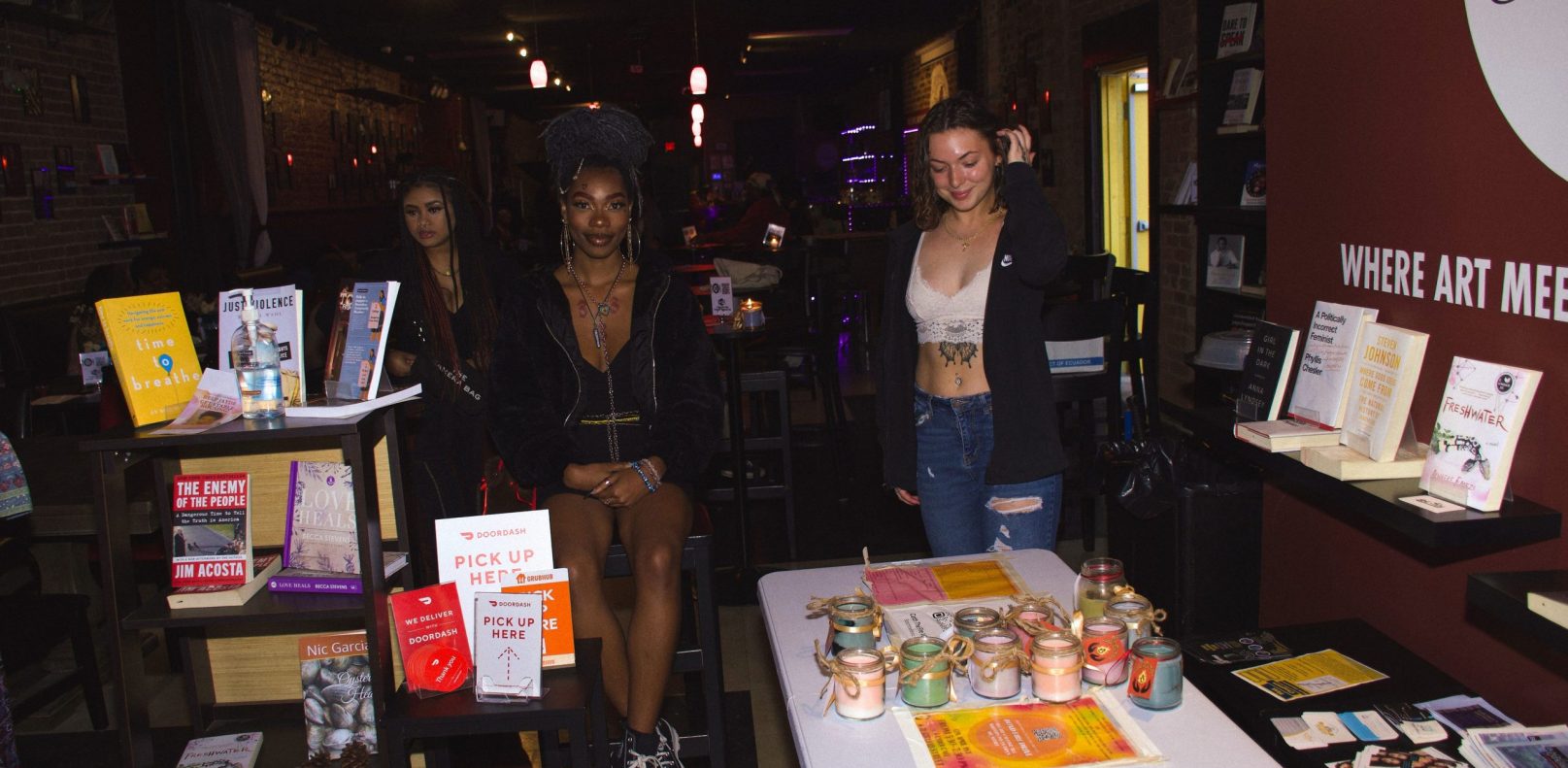Interview & Article By Monisha Mukherjee
Photography by@lightpainterr
About a month ago I was lucky enough to be able to sit down with some of the leaders of Virginia Commonwealth University’s Black Student Advocacy group to talk about their inspiring club, their struggles and hopes for the future and the sense of community they foster.
How did Catch the Fire get started?
Kamari: So essentially, I had been having problems with VCU’s [Virginia Commonwealth University] disciplinary board and VCU’s code of conduct, obviously those two things disproportionately affect Black students. So, when I’m dealing with problems that disproportionately affect Black students and VCU’s white administration is telling me I’m not dealing with those problems, it’s racial gaslighting. I think it’s very funny that they can call themselves a diverse university but do not support Black students, so I wanted to start a group that would support the Black students here.

Did you two start the group together?
Aysia: No. She [Kamari] originally pitched the idea to me and told me that she was going to start it last summer, and I told her ‘I’m in. We had both been dealing with issues in the dorm already with microaggressions, and we felt that we needed to do something. I know other students, Black students specifically, have been dealing with this and we can’t just keep experiencing it.

How did the administration and climate at VCU impact you to start this organization?
Kamari: There’s around 20 other members in the group and I know more than half of them. Even the members who aren’t Black have dealt with issues with VCU financial aid, insensitive professors, racism in the dorms and micro-aggressive behavior, and that’s just a sample of 20 students. When I talk to the larger student body and do polls, we find out that there are a lot of students that are dealing with these issues, and they have brought attention to VCU, and VCU just washes their hands of it.
Aysia: They very much throw these issues under the rug. A lot of members in our group tell us that they’ve had personal experiences with VCU either trying to throw them out or just dealing with VCU P.D. They all contribute, even when they aren’t actively doing this, how they charge as much as they do knowing the climate. Knowing that some of us are low income is also a big factor in the things that they do.
What are your biggest goals and hopes for this organization?
Kamari: I really hope to just create a better supportive community in Richmond. Something that supports VCU students, college students and Richmond locals. I think if there are over a hundred thousand people in this city being oppressed by the same systems, we could work together [and]then these could become problems that students of color won’t have to deal with because the community will be there to support them, even if VCU isn’t. I know so many students are really tired, so I know that this [system] isn’t going to last much longer and we need something radically different from what we have now.
Aysia: We can see it everywhere; how much everyone is suffering, and the goal is to help alleviate that a little bit. We never really get a break from this system constantly beating us down and we need something to uplift people, to get people feeling human again and to get that experience and that love out there again. I always preach that a big goal is to spread love because there is so much hate in the world. Love brings community and it brings all the resources we need to help each other and thrive.
What are some misconceptions about your organization?
Kamari: People tend to think that we are a hateful organization, but anybody that knows me knows that I’m all about love. We are all about helping and sharing and that’s what communism is; the root word is community. I don’t understand why communism and abolition, especially abolition, scares people. When you think about how many people are being impacted by the United States prison system, the criminal justice system, and the police, those are the real victims in our society and for anyone to overlook it that’s the problem. Anything that’s going to make Black people feel better, we are going to do. That’s abolition, that’s not reform.
Aysia: This is not a white hate group. People think that ‘oh they are talking about black issues so it’s a white hate group.’ It’s never about that. It’s about, once again, spreading the love and building the community. And in building the community you are going to expose the things that affect that community. It’s not about hating anyone, it’s about uplifting ourselves, and uplifting black people first because we are affected by every issue, and when you address black issues, you address every issue.
What have been your big struggles so far, with either the community or the school?
Kamari: I think that the administration at VCU, and some of the more conservative student body, don’t feel like their views align with ours, and I don’t blame them. I do feel sorry for them because at the end of the day, everything Catch the Fire is to help the entire student body. Every financial issue that any student on this campus is affected by, affects the entire student body. It doesn’t make sense to me when people say they won’t stand up to the administration and speak up for financial security, and I think that people are afraid to do that because they haven’t seen it before with a large amount of support and that’s what we are trying to provide.
Aysia: That’s the biggest thing that we are missing in this world; everybody feels so alone, because of this individualistic mindset but it’s crazy because when do you actually get to experience that? Because you can’t build anything by yourself you have to have other people around you so why not make a community with those people. I realize that a lot of people want to do something, but they don’t know how to do it, and I say with Catch the Fire we give people agency. It’s like you have a problem? Okay what are we going to do about it?

Do you think the administration understands your goals?
Kamari: No and I think it’s funny because I have a good relationship with a lot of the staff members at VCU; whether that be professors, chairpersons, and the custodial staff…When you get to the people at the very top like the Board or the President, they are the ones that have something to say about what we do, but I think that’s because they aren’t impacted by the decisions that they make. They can wash their hands of these things because it doesn’t affect them, but I can’t do that. We, the organization, are not going to stand for that.
Aysia: They see us as a threat, because we are exposing a lot of things that they do, especially involving money situations. We are exposing them, and it makes them look bad, like we can bring that down but it’s not about bringing anything down it’s about exposing the truth that’s already there.
If you feel comfortable, could you tell me about your current legal troubles?
Kamari: Alice Massie approached me at the park, and I did not know that was her name at the time. I thought she was going to ask me about my art, and she wasn’t. So, I decided to do the polite thing and ignore her. Aysia attempts to come over and help me out.
Aysia: I started running over there because I could see their interaction and I felt like this was weird. I need to step in and do something. I get over there and she [Alice Massie] has this smug smile on her face and Kamari is not engaging. You [ Kamari] asked her “who are you” and she just picked up a park sign and shoved it in our faces. We walked away and she followed us. A third party who doesn’t want to be named started engaging with her, so I stepped in and asked her to leave us alone and she started getting hostile. She pulls out her phone and starts dialing, and I see she is dialing the police. So I did what I thought was best, and I whipped out my phone and started recording. I asked her “Maam,what is your name,” and as I asked her she hit me, like she hit my hand…. I see the cop approaching and I tell the cop I have a video of this woman hitting me, she has been harassing us for like 15 minutes, and we don’t know who she is. The cop asked me if I wanted to press charges and at first I said no, but I eventually told the cop ‘Yeah I’m going to press charges.’
How has the school and city’s handling of this incident been for you?
Kamari: So then three days later I’m sitting in the middle of my class, and I get an email from the VCU dean of students saying that I am being charged with one count of harassment and 2 counts of abusive conduct. I was reading it and thought what could this possibly be from, and then I thought back to the other day. So, I sent the letter to the other group members at the time, and so we took the video evidence and posted it on the page with a description of what actually happened, because we thought we needed eyes on this and the video went viral. We are at this point just trying to be sure we aren’t victimized by the VCU disciplinary board.
Aysia: So for my meeting [hearing with the disciplinary board] I didn’t have any family there, it was just Dr. Mignonne Guy and Liz Canfield (VCU faculty members that Catch the Fire contacted for support and guidance) that were there with me. They (the disciplinary board) went into it to attack. It’s like I would say something, and they would use it against me. So, Dr. Guy then asked who wrote up these charges, and the woman on the video who was conducting the hearing didn’t really want to tell us. So, Dr. Guy asks again, and the woman on the video says, “I was the one who had to transcribe what Ms. Massie said,” and Dr Guy responded “You’re the one making the decision?”
What aid do you feel like you should be getting from the school that you’re not receiving?
Kamari: This is the problem that I have with the VCU disciplinary board, in real criminal court cases whoever is being charged usually has access to pretty much everything that’s going to be used against them. We should’ve had access to the report so we could defend ourselves. We didn’t know what we were defending ourselves against, we didn’t know the details of the charges… they basically just sent us an email saying show up at a date.
What are the most important actions that the school could take to help all BIPOC students at VCU?
Kamari: If they can’t freeze tuition, something else would be more need-based scholarships. Merit based scholarships are not realistic for students of color, because more students of color have to have jobs, they don’t have the same amount of time to commit to school so it’s very disrespectful to say that I’m not committed to my degree because I have to work to pay for the degree, they said would cost 20,000 dollars.
Aysia: Just being more compassionate to your students. Why are they evicting students in the middle of winter because they can’t pay a thousand dollars which the school has? They spend it on an Echosmith concert and a hundred food trucks, but you can let this student who has nowhere else to go freeze to death because he can’t finish paying the rest of his housing?
Kamari: I asked the school why it was okay for VCU to evict students within a forty-eight-hour period, and she said that she was going to hang up and she hung up in my face. These are valid questions that we can’t get answers about. The administration just like the government is meant to serve the student body.
After the verdict in the Massie trial is there anything else you want to say about how the case was handled or your plans moving forward?
Kamari and Aysia: Unlike our attorney, I knew she would plead “not guilty” on the basis of self-defense. I knew that she couldn’t prove that her life was actually endangered though, so she would obviously use our blackness as the supposed threat she needed to protect herself against. The defense attorney was being very patronizing and prejudiced the entire time. He repeatedly tried to antagonize us and used irrelevant questions to try and frame us as angry black women. “Did you cuss at all that day?” “So you weren’t angry?” This combined with the judge’s ignorance in relation to racism and discrimination and then the law on assault itself led to Alice Massie walking away without even a slap on the wrist. She even said the word “n****r” in court, verbatim, in front of us, the black staff in the courtroom, and all the other black people in the courtroom awaiting trial, and she still was not racist enough for the judge to reprimand her. Personally, I never want to go to court again because we never had any faith in the criminal injustice system anyway, but Aysia would like to pursue a civil suit and Catch the Fire will do whatever we can to get Richmond City and VCU to permanently cut ties with Alice Massie and the Monroe Park Conservancy.

